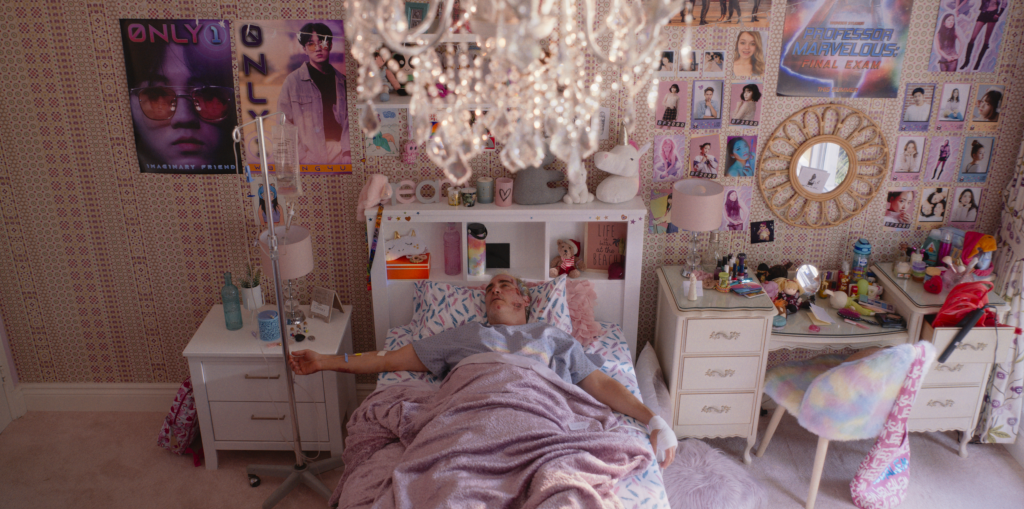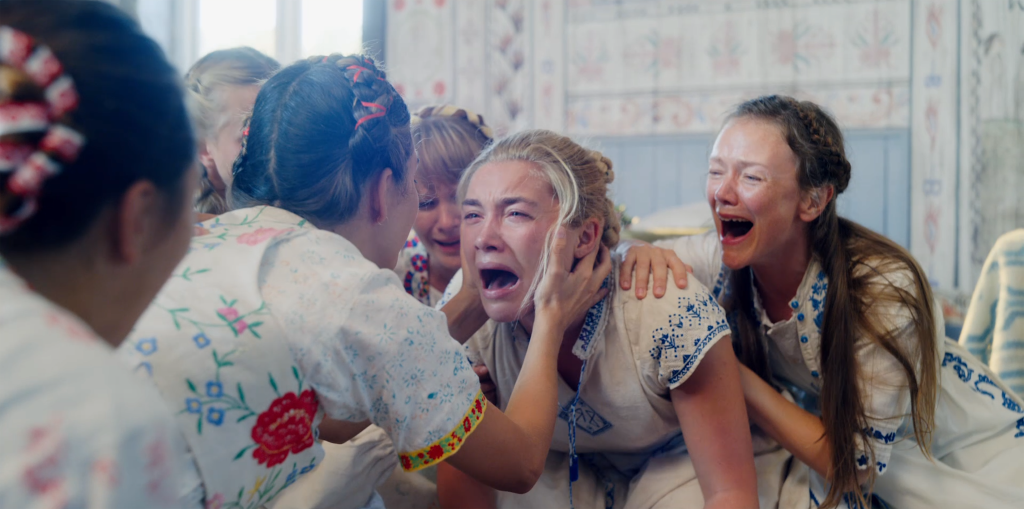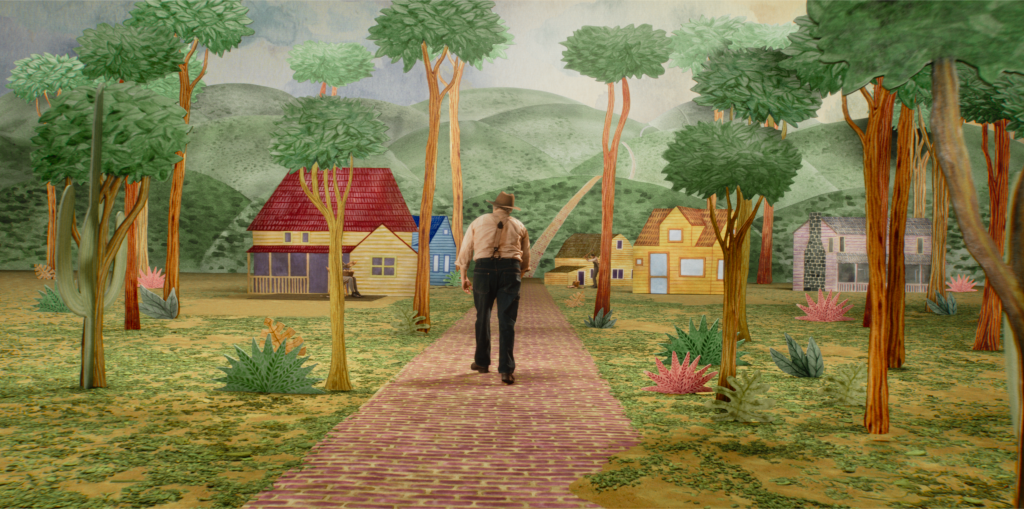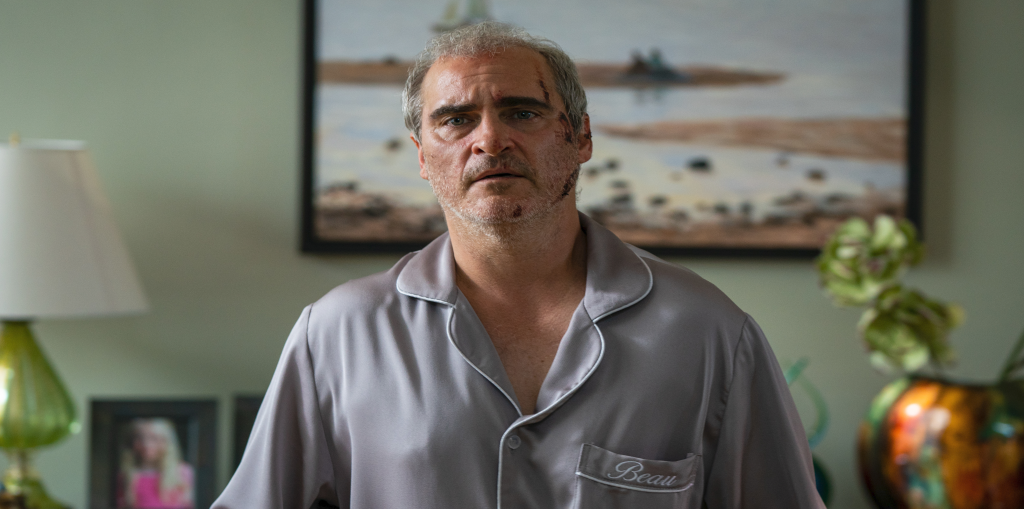Ari Aster finally sticks the landing with “Beau is Afraid”
Ari Aster has returned to screens around the nation with his junior film, “Beau is Afraid.” Unlike his previous films, the cast has much more established names, such as Joaquin Phoenix, Parker Posey, Nathan Hale, Pattie LuPone and a particularly funny cameo from Bill Hader. Further solidifying the newfound backing behind Aster’s name is the film’s budget, which is triple that of his past work. As well as an extra hour added to its runtime. Needless to say, Aster has clear support from the industry.

If we were talking prior to this film, certain names would object to that. “Hereditary” and “Midsommar” are good, especially good for debut films, but have problems with the ambitious way it tries to utilize point of view.
On anti-Horror
Aster gets compared to Robert Eggers a lot, and it’s clear to see why. They both employ a unique approach to horror, similar to comedians who use anti-humor. So anti-horror maybe? Basically, instead of the horror being a monster that jumps out of the closet to stab you, it’s something that is always there but becomes more visible as the film goes on. It’s situational, unflinchingly so, and the audience is subjected to palpable anxiety, staring down the barrel until the credits role. The horror is in being trapped with the characters, and so we want them to get out just as much as they do. We see this in “The Witch.” The filmmaking expresses the oppressive atmosphere that our main inhabits, and the subtleties of that atmosphere come to the forefront to give a thrilling third act. We also see that in “Hereditary,” a film that brings a great deal of attention to its filmmaking.
The largest way to tell their filmography apart is their approach to point of view. Egger’s films stick with a traditional invisible third party narrator. Aster’s films, however, notoriously like to play with the heads of his characters, and present the story to us from their perspective — he’ll show how an unwell person experiencing heightened trauma would retell said trauma. Again, in “Hereditary,” though it’s debated which one, it’s almost universally agreed that the film is less literal and more how the viewer copes with what is going on in their current lives.

“Midsommar” seems to be the story of how a woman dumps her man and his toxic friends, and is told to us by her burning them in a house and watching maniacally. This is a very ambitious approach as you have to walk a very thin line between what parts of reality to bend to communicate the character’s eyes, and what parts do you keep traditional to form so you don’t completely alienate your audience. Though it’s been shaky in the past, “Beau is Afraid” sticks this landing.
Now for the actual review
The fear of this film is his most universal, yet told so specifically. The thing Beau is afraid of is to be alive. He’s also afraid of dying and not living a life worth living. He is terrified of moving but is also terrified of not moving. And as such, the filmmaking follows in tow. Starting with set deck and background characters, this world got right on the bus at anxiety central and headed straight to the screen. Imagine if every anxious thought you had was real. Everything you were scared of someone saying and thinking of you was true and intensified.

That’s such a ridiculously thought, but a fear we all can relate to. So unlike “Midsommar” and “Hereditary” that are niche experiences inside a fairly broad world, we have broad experiences told in a niche world. Everything from the evil teen girls to the naked man with a knife are so absurd that you can’t take it seriously. But since we’ve all experienced fears similar to it, we still understand Beau’s fears.
Secondly, there’s the pacing of the story. As you’re watching it, and definitely when you see that length time, you may feel like the story is dragging. But as things continue to move, it creeps in more and more how all of these moments matter. Not necessarily what is said, but what the camera is telling us is what Beau took from these moments. What the filmmaking communicates is what he was afraid of. And so we’ll have a 30 minute story that is fast nonstop action, that bleeds into a 10 minute breakdown of what makes Beau tick. This neck breaking contrast emphasizes Aster’s anti-horror. It creates a much scarier environment that you can’t help but itch at while watching.

Overall, “Beau is Afraid” is an excellent step forward for Aster. It takes the best parts of his previous films and combines them to create a distinct movie-watching experience and very unique character. The filmmaking is blatant in all the best ways, shifting from speedy cuts to crawling one takes at a moment’s notice. As for the ending, no spoilers, but what a freaking ride dude.

























